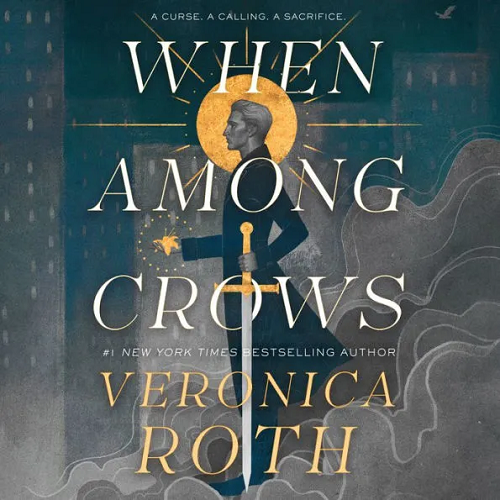 When Among Crows by Veronica Roth
When Among Crows by Veronica Roth Narrator: Helen Laser, James Fouhey, Tim Campbell
Format: audiobook, eARC
Source: supplied by publisher via Edelweiss, supplied by publisher via Libro.fm
Formats available: hardcover, ebook, audiobook
Genres: fantasy, urban fantasy
Pages: 176
Length: 4 hours and 29 minutes
Published by Macmillan Audio, Tor Books on May 14, 2024
Purchasing Info: Author's Website, Publisher's Website, Amazon, Barnes & Noble, Kobo, Bookshop.org, Better World Books
Goodreads
When Among Crows is swift and striking, drawing from the deep well of Slavic folklore and asking if redemption and atonement can be found in embracing what we most fear.
We bear the sword, and we bear the pain of the sword.
Pain is Dymitr’s calling. His family is one in a long line of hunters who sacrifice their souls to slay monsters. Now he’s tasked with a deadly mission: find the legendary witch Baba Jaga. To reach her, Dymitr must ally with the ones he’s sworn to kill.
Pain is Ala’s inheritance. A fear-eating zmora with little left to lose, Ala awaits death from the curse she carries. When Dymitr offers her a cure in exchange for her help, she has no choice but to agree.
Together they must fight against time and the wrath of the Chicago underworld. But Dymitr’s secrets—and his true motives—may be the thing that actually destroys them.
My Review:
There’s an old Polish saying – not the one you’re thinking of, at least not yet – that translates as “Not my circus, not my monkeys” Which pretty much sums up the attitude of the first zmora that Dymitr approaches in regards to the very dangerous trade he wants to make.
The second zmora comes to him, because what he’s offering IS her cursed circus and those are her damned monkeys. Or, to be a bit more on the nose about the whole thing, it is her murder – or at least it will be – and those are her crows, who are already flocking to the scene.
Dymitr has acquired a legendary magical artifact that holds the possibility of a cure for the curse that Ala suffers from. A curse that killed her mother, her aunt, and her cousin, and is now killing her. A curse that will pass down her bloodline to the next female relative in line – no matter how distant – until the whole line is wiped out.
In return, Dymitr wants an introduction to another legendary ‘artifact’, the powerful witch Baba Jaga [that’s how her name is spelled in the book]. As merely a human, Dymitr does not have access to the places and people that will get him to his goal. As a zmora, while Ala does not know Baba Jaga at all, she does have contacts who can at least get Dymitr a few steps further along on the quest that he refuses to either name or explain.
Their journey proves to be a very different “magical mystery tour” than the one that the Beatles sang about, observing the different magical populations that have migrated to Chicago from his native Poland, and how each group abides by the proverb, “When among crows, caw as the crows do.”
The zmora, who feed on fear, operate movie theaters that feature horror movies, the strzygi, who live on anger and aggression, run underground fight clubs, while the llorona, who collect sorrow, own a chain of hospice centers. It’s all perfectly legal, or at least most of it is. And the parts that aren’t, the strzygi fight clubs, fit right in with the rest of the organized crime and corruption that operates in Chicago.
The supernatural have learned to caw like the crows do, the better to hide from the powerful so-called ‘Holy Order’ that hunts down anyone and anything it deems to be ‘not human enough’. And isn’t that the most human impulse of all?
An impulse, and a life, that Dmitry is willing to cut himself off from – literally as well as figuratively – at any and all cost. Even the cost of the humanity that his family has held so dear over the centuries.
All he needs to do is find Baba Jaga – and pay whatever price she demands in order to cut the sword out of his back once and for all.
Escape Rating A+: I’ve frequently said that a story has to be just about perfect to make the leap from an A- to an A. This one absolutely did, and listening to the audio put it over the top into A+. With bells on. To the point where I have to restrain myself from just squeeing all over the place.
The tone of When Among Crows felt very much like ‘old school’ urban fantasy before it left its horror with mystery roots behind to fall down the paranormal romance rabbit hole. Not that I don’t love a good paranormal with a kickass heroine posed on the cover in an utterly impossible position, but those got to dominating the genre and that’s not all I wanted from it.
(The blurb implies a romantic relationship between Dymitr and Ala. Don’t be fooled, that is absolutely not what is going on here – and it shouldn’t be. The relationship they are scrabbling towards is family, that the pain they have both suffered, and from the same source, can lead to them finding the family ties that pain has cost them with each other.)
 At the same time, the way this story drew in so many Slavic myths and legends that I itched for a mythopedia (I was driving, that would have had terrible consequences) reminded me, a lot and very fondly, of Neil Gaiman’s American Gods, because that book gave me the same vibes – along with the same dilemma – and I listened to it well before the Annotated Edition was published. I won’t say that When Among Crows was better, because American Gods had a much larger scope, but for the smaller size of the package of Crows, it still managed to evoke that same sense of memory and wonder, that so much that is old and weird still walks among us hidden in plain sight – made all that much more poignant in that the place the weird is hiding is the darker corners of Chicago – a city that has always had plenty.
At the same time, the way this story drew in so many Slavic myths and legends that I itched for a mythopedia (I was driving, that would have had terrible consequences) reminded me, a lot and very fondly, of Neil Gaiman’s American Gods, because that book gave me the same vibes – along with the same dilemma – and I listened to it well before the Annotated Edition was published. I won’t say that When Among Crows was better, because American Gods had a much larger scope, but for the smaller size of the package of Crows, it still managed to evoke that same sense of memory and wonder, that so much that is old and weird still walks among us hidden in plain sight – made all that much more poignant in that the place the weird is hiding is the darker corners of Chicago – a city that has always had plenty.
When Among Crows was utterly enchanting, and I was totally enchanted by it, staying up entirely too late to finish the audio because it was just that good. While the story was relatively short, it also went surprisingly deep, and then came around full circle in a way that surprised and delighted even as it led to a delicious sort of closure that I wasn’t expecting but utterly loved.

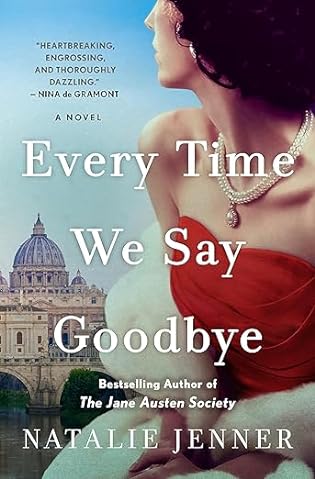 Every Time We Say Goodbye (Jane Austen Society, #3) by
Every Time We Say Goodbye (Jane Austen Society, #3) by  I picked this up because I loved the author’s earlier book,
I picked this up because I loved the author’s earlier book,  Escape Rating B: Before I get to the story of the book, I absolutely need to say something about the audiobook. Specifically, that the audiobook is excellent. The reader, Juliet Aubrey, was a perfect choice and she made the whole thing better and carried me through even at points where I wondered how the parts of the story connected to each other because she was just awesome.
Escape Rating B: Before I get to the story of the book, I absolutely need to say something about the audiobook. Specifically, that the audiobook is excellent. The reader, Juliet Aubrey, was a perfect choice and she made the whole thing better and carried me through even at points where I wondered how the parts of the story connected to each other because she was just awesome. .
.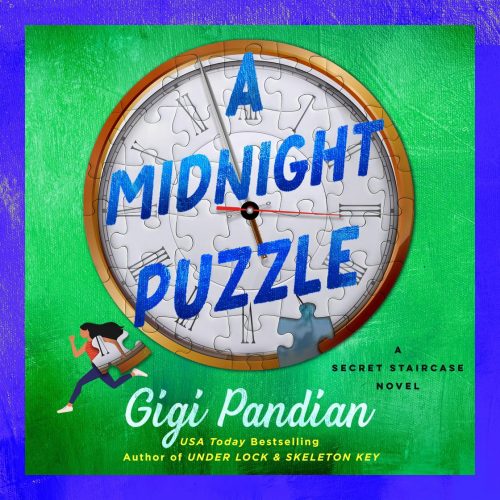 A Midnight Puzzle (Secret Staircase Mystery, #3) by
A Midnight Puzzle (Secret Staircase Mystery, #3) by 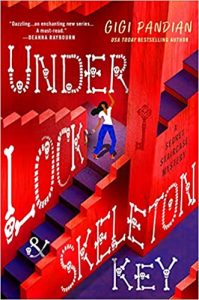 After her adventures – and misadventures – in the first two books in the
After her adventures – and misadventures – in the first two books in the 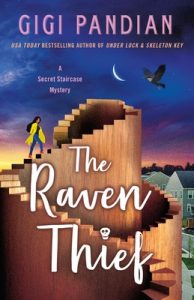 Escape Rating B: I have to admit that I went into this third entry in the series with a bit of trepidation after the muddle of
Escape Rating B: I have to admit that I went into this third entry in the series with a bit of trepidation after the muddle of 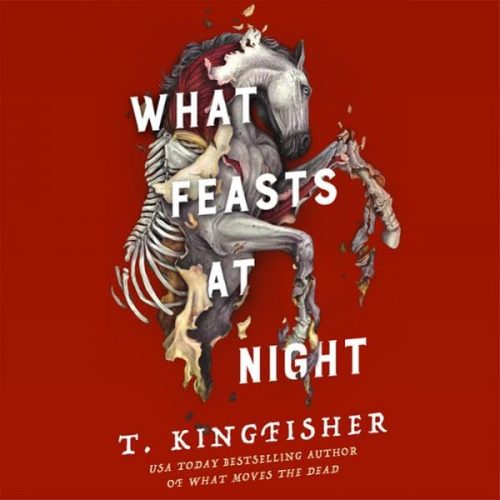 What Feasts at Night (Sworn Soldier, #2) by
What Feasts at Night (Sworn Soldier, #2) by 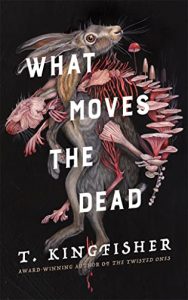 Escape Rating A-: I’m not sure whether to say that What Feasts at Night isn’t quite as creepy as
Escape Rating A-: I’m not sure whether to say that What Feasts at Night isn’t quite as creepy as 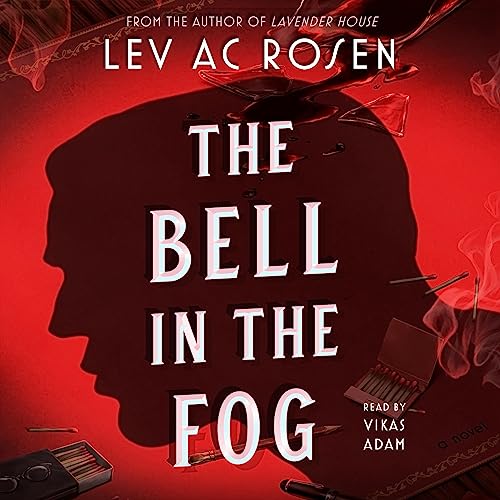 The Bell in the Fog (Evander Mills, #2) by
The Bell in the Fog (Evander Mills, #2) by  Andy needs the case because he needs the money. Business for an ex-cop turned P.I. isn’t good when EVERYONE remembers that he used to be a cop – the people who hassle and roust and beat up guys just like them Just like him, which makes the betrayal that much worse.
Andy needs the case because he needs the money. Business for an ex-cop turned P.I. isn’t good when EVERYONE remembers that he used to be a cop – the people who hassle and roust and beat up guys just like them Just like him, which makes the betrayal that much worse.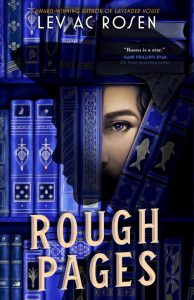 And what that means for anyone trying to just live their life the best they can where that life has already been declared a criminal act.
And what that means for anyone trying to just live their life the best they can where that life has already been declared a criminal act.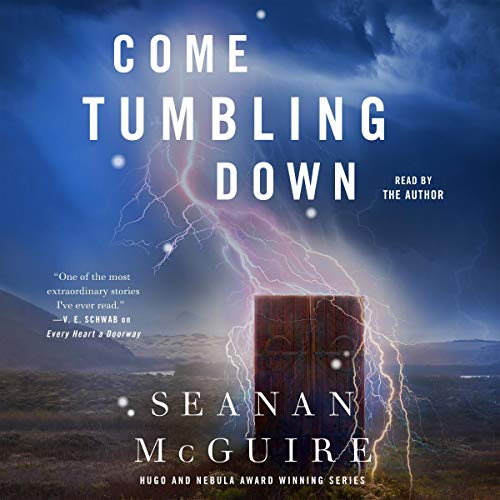 Come Tumbling Down (Wayward Children, #5) by
Come Tumbling Down (Wayward Children, #5) by 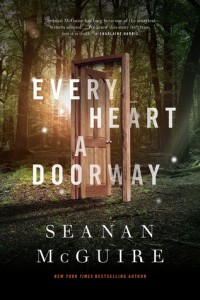 I’ve been winding my way through Seanan McGuire’s
I’ve been winding my way through Seanan McGuire’s 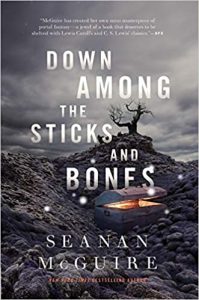 Jack is in dire straits when she returns to the school, and she needs the help of the only friends she can trust to see that, in spite of appearances, she’s still Jack even though she’s in her twin sister Jill’s body. They are the only people who know her well enough to understand that her OCD will not allow her to just adapt to living her life in the unclean thing that murdered her mentor – even if Jill’s full, entire, complete and utterly nefarious plot is to destroy both her sister Jack and the balance that keeps The Moors relatively safe and functional for the human population that was born to a world where vampires contend with mad scientists and drowned gods prey upon ships and shorelines, where the sun only rises behind thick clouds and lightning storms happen whenever the Moon wills it so.
Jack is in dire straits when she returns to the school, and she needs the help of the only friends she can trust to see that, in spite of appearances, she’s still Jack even though she’s in her twin sister Jill’s body. They are the only people who know her well enough to understand that her OCD will not allow her to just adapt to living her life in the unclean thing that murdered her mentor – even if Jill’s full, entire, complete and utterly nefarious plot is to destroy both her sister Jack and the balance that keeps The Moors relatively safe and functional for the human population that was born to a world where vampires contend with mad scientists and drowned gods prey upon ships and shorelines, where the sun only rises behind thick clouds and lightning storms happen whenever the Moon wills it so. Escape Rating A-: The
Escape Rating A-: The 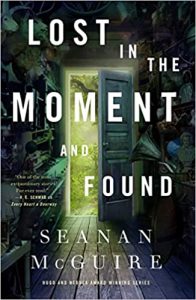 One of the core tenets of the whole, entire,
One of the core tenets of the whole, entire, 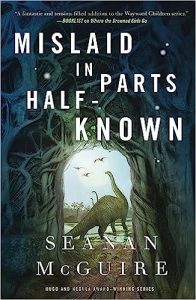 So, on the surface there’s a story about vampires and mad scientists set in a place that the great horror movies might have used for their inspiration – if not their actual setting. Underneath that there’s a deeper story about balances of power and how devastating it can be when those balances become unbalanced. And the story of one heroine who is willing to throw her own body into the breach – along with her sister’s corpse – to preserve that balance at truly any and every cost.
So, on the surface there’s a story about vampires and mad scientists set in a place that the great horror movies might have used for their inspiration – if not their actual setting. Underneath that there’s a deeper story about balances of power and how devastating it can be when those balances become unbalanced. And the story of one heroine who is willing to throw her own body into the breach – along with her sister’s corpse – to preserve that balance at truly any and every cost.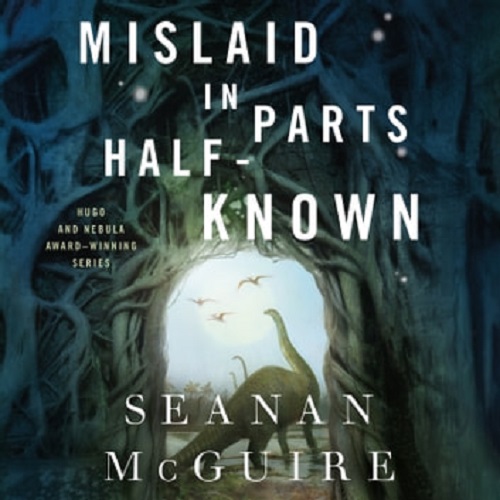 Mislaid in Parts Half-Known (Wayward Children, #9) by
Mislaid in Parts Half-Known (Wayward Children, #9) by 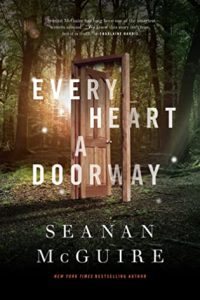 Beginning with
Beginning with 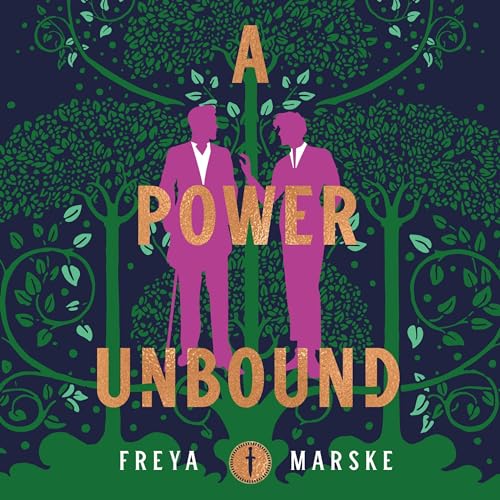 A Power Unbound (The Last Binding, #3) by
A Power Unbound (The Last Binding, #3) by 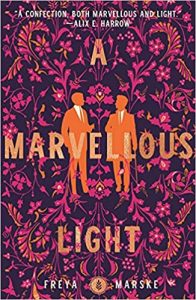 This series,
This series, 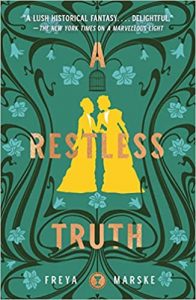 But the balancing act between the romance and the magical mystery tour started to tip in the second book in the series. I did enjoy
But the balancing act between the romance and the magical mystery tour started to tip in the second book in the series. I did enjoy 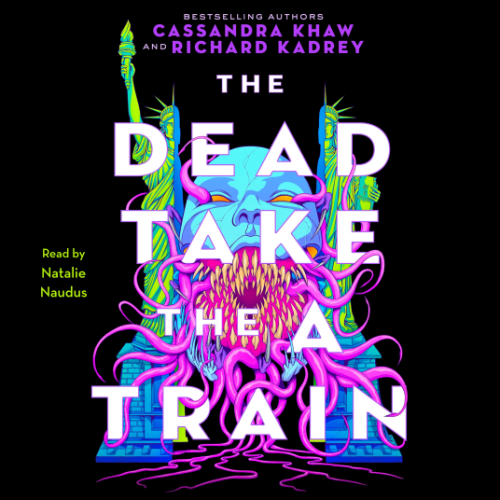 The Dead Take the A Train (Carrion City, #1) by
The Dead Take the A Train (Carrion City, #1) by 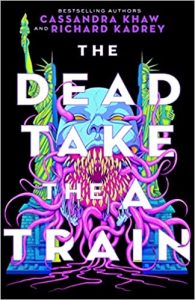 Escape Rating B+: First and most importantly, this is your trigger warning that The Dead Take the A Train is a bloody, gory, gruesome reminder that urban fantasy as a genre is the uncanny child of mystery and horror, much like the uncanny babies being born in yesterday’s book,
Escape Rating B+: First and most importantly, this is your trigger warning that The Dead Take the A Train is a bloody, gory, gruesome reminder that urban fantasy as a genre is the uncanny child of mystery and horror, much like the uncanny babies being born in yesterday’s book, 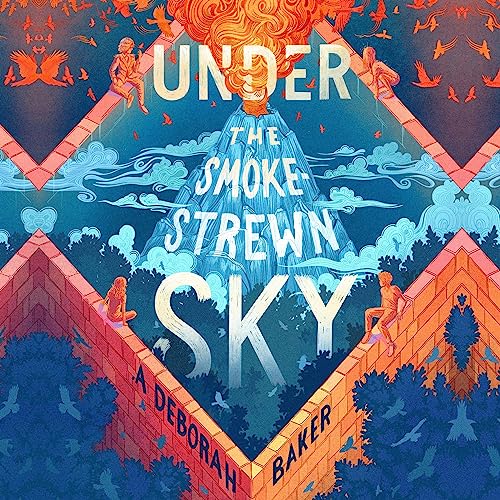 Under the Smokestrewn Sky (The Up-and-Under, #4) by
Under the Smokestrewn Sky (The Up-and-Under, #4) by 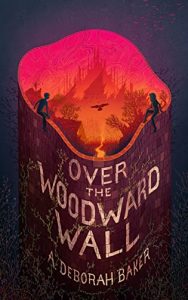 We have come, at last, to the final chapter of Zib and Avery’s journey into and hopefully through the Up-and-Under. It’s a journey that has taken them from their ordinary and mundane homes – even if Zib’s and Avery’s definitions of ordinary and mundane are entirely opposite to one another – and sent them along the Improbable Road on an equally improbable journey through every single one of the elemental kingdoms in the Up-and-Under.
We have come, at last, to the final chapter of Zib and Avery’s journey into and hopefully through the Up-and-Under. It’s a journey that has taken them from their ordinary and mundane homes – even if Zib’s and Avery’s definitions of ordinary and mundane are entirely opposite to one another – and sent them along the Improbable Road on an equally improbable journey through every single one of the elemental kingdoms in the Up-and-Under.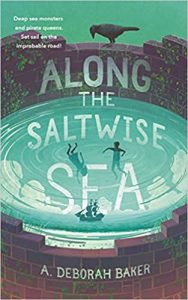 It’s Avery’s bit of stubborn backsliding that pushes the story off the Improbable Road and into their very last set of adventures in the Up-and-Under. Adventures that will have a much bigger impact than any of them imagined when they began.
It’s Avery’s bit of stubborn backsliding that pushes the story off the Improbable Road and into their very last set of adventures in the Up-and-Under. Adventures that will have a much bigger impact than any of them imagined when they began.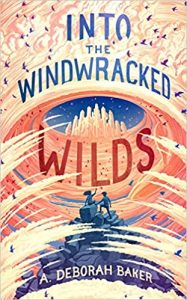 No matter the age of the protagonists, this has been the story of an epic fantasy quest that combines bits of Narnia with elements of Wonderland. Zib and Avery have been brought to the Up-and-Under to fix what’s gone wrong there, while for Zib and Avery the quest is to find their way home. It’s not going to end in a big battle between good and evil, because those concepts aren’t exactly the same in the Up-an-Under as they are back home. Instead, it’s a quest to put the out-of-balance back into balance – even if some of what they see looks like evil to Zib and Avery’s – especially Avery’s – eyes.
No matter the age of the protagonists, this has been the story of an epic fantasy quest that combines bits of Narnia with elements of Wonderland. Zib and Avery have been brought to the Up-and-Under to fix what’s gone wrong there, while for Zib and Avery the quest is to find their way home. It’s not going to end in a big battle between good and evil, because those concepts aren’t exactly the same in the Up-an-Under as they are back home. Instead, it’s a quest to put the out-of-balance back into balance – even if some of what they see looks like evil to Zib and Avery’s – especially Avery’s – eyes.